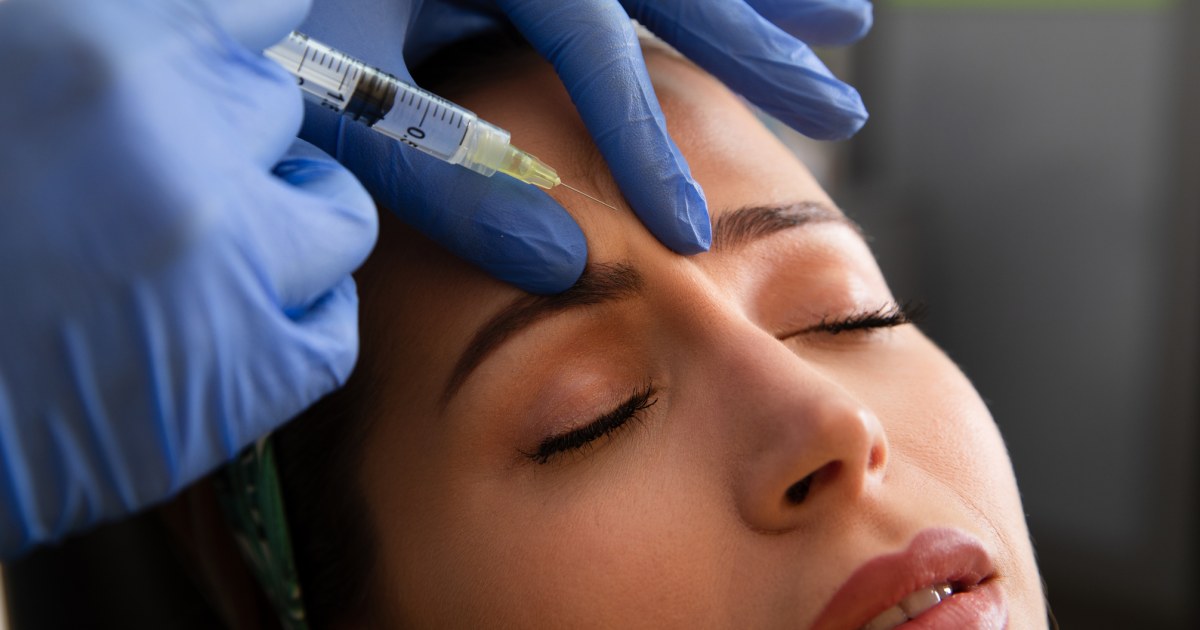Three women probably became infected with HIV while receiving calls vampire facials (vampire facials) in a spa of New Mexico, among the first known cases of HIV transmitted through cosmetic injections, the Centers for Disease Control and Prevention (CDC) reported in a report this Thursday.
The first case of HIV linked to the VIP Spa in Albuquerque was discovered in 2018 and led the New Mexico Department of Health to offer free testing to anyone who received injections at the facility. The department said at the time that the spa was closed after its investigators “identified practices that could potentially spread bloodborne infections.”
The most recent case was that of a former client of the place who tested positive for HIV last yearaccording to the health department, which led it to reopen the previous investigation.
The CDC report offers new details about the affected clients and the spa's practices.
The first case was a middle-aged woman who tested positive for HIV in 2018, according to the CDC. She had no history of injection drug use, recent blood transfusions, or recent sexual contact with someone who had HIV, but she did report undergoing a vampire facial.
The next two were also middle-aged women who had vampire facials done in 2018. One was diagnosed with the earliest stage of HIV in 2019, and the other in 2023, when she was hospitalized with severe symptoms.
The CDC indicated that the spa it did not have the appropriate licenses to operate and was not using appropriate safety measures.
A joint investigation by the CDC and the New Mexico Department of Health found a rack of unlabeled blood tubes on a kitchen counter at the facility, as well as in the kitchen refrigerator, next to food and injectable products such as lidocaine . Investigators also discovered unwrapped syringes in drawers, counters and paper baskets.
The spa owner pleaded guilty in 2022 to five felonies for practicing medicine without a license, the health department reported last year. Albuquerque's NBC affiliate KOB reported in 2022 that the owner had been sentenced to 3 and a half years in prison.
CDC and health department investigators ultimately determined that 59 spa clients may have been exposed to HIV. From them, 20 had received vampire facials, a procedure also known as “microneedle platelet-rich plasma injections.” It involves taking blood from a person, separating the plasma and injecting it into the face with small needles. The rest of the clients had undergone other injection services, such as Botox, the CDC reported.
People undergo vampire facials to plump up sagging skin and reduce scarring from acne or wrinkles, but according to the American Academy of Dermatology, there is little evidence to support that the procedure has those benefits. The AAD stated that facial treatments appear safe as long as the blood is handled correctly.
In addition to the three clients of the spa who contracted HIV, the CDC identified a woman who received multiple vampire facials at the site in 2018, and who had tested positive for HIV two years earlier. However, the researchers said that the original source of HIV contamination in the remains unknown.
HIV is transmitted through contact with an infected person's body fluids, including blood and semen, which is why it is most commonly contracted through sex or sharing needles. HIV attacks the immune system and, if untreated, can cause AIDS. People with this disease have severely damaged immune systems, which makes them susceptible to various infections and serious diseases.
The CDC noted in its report that spa Those offering cosmetic injections must have adequate infection control practices to prevent the transmission of HIV and other pathogens.
The risks of cosmetic injections have also gained attention recently due to an ongoing CDC investigation into fake and mishandled Botox injections.
The agency has identified 22 women who experienced adverse reactions to injections, such as difficulty speaking and breathing and blurred vision. Until last week, 11 hospitalizations had been recorded.
Six patients were treated with botulinum antitoxin for fear that the toxin from the injection could have spread beyond the site where it was administered.

